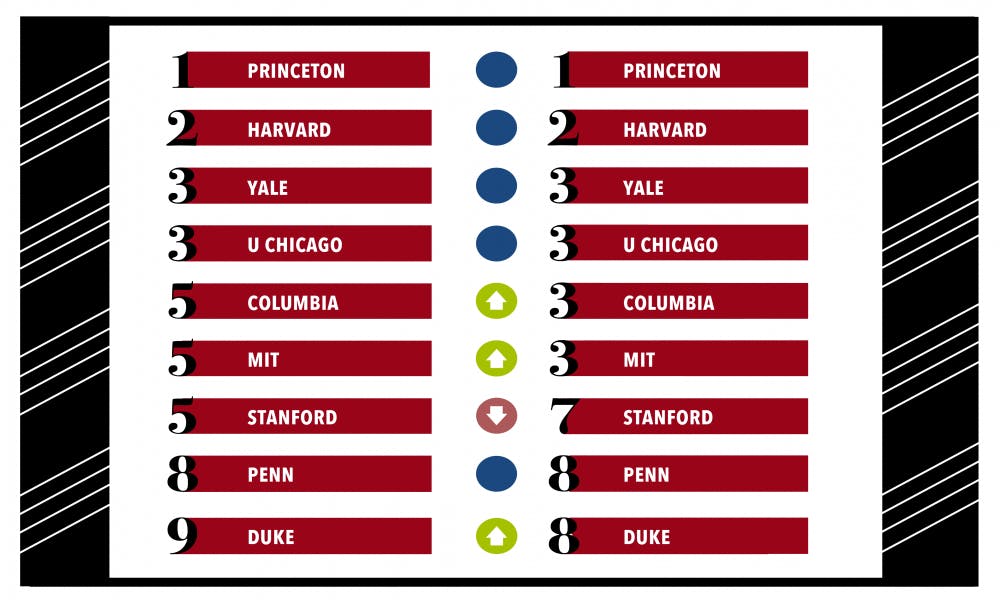For the third year in a row, Penn ranked as No. 8 in the U.S. News & World Report’s ranking of universities in the United States. Penn shares the position with Duke University, which came in ninth in 2017.
Princeton University continued its streak at the top, coming in first for the eighth year in a row. Harvard University was second, while Columbia University and Yale University shared third place in a four-way tie with the University of Chicago and the Massachusetts Institute of Technology. Dartmouth College dropped one spot from last year to No. 12, while Brown University and Cornell University occupied the No. 14 and No. 16 spots, respectively.
There has been little to no change in Penn’s rankings in the U.S. News report over the past six years. It eked forward in 2013, coming in seventh place, and slipped to No. 9 in 2016, but has otherwise stayed at its current position.
According to other U.S. News reports, Penn is also currently ranked as No. 12 in Best Value Schools, first in Business Programs and No. 32 in Most Innovative Schools.
The U.S. News Report is one of the most popular sources of national college ratings, and collects a wide range of data in order to compile its lists. These annual rankings are published after a review of 16 different standards of academic character for each college, according to a U.S. News article. The news organization directly surveys each school, using “hard data” such as graduation and retention rate, availability of faculty resources, and students’ performance on standardized tests.
The factors that are most heavily weighted fall under "outcomes," which refer primarily to the ability of a university to retain its class of students through to graduation.
For the first time this year, U.S. News also factored in “social mobility” as one of the measures under "outcomes" by looking at how many graduating individuals from each institution received Pell Grants – need-based financial aid based on the information provided on the Free Application for Federal Student Aid. In 2017, 14 percent of freshmen enrolled at Penn had Pell grants, the Washington Post reported, placing it as No. 7 in the Ivy League.
Part of the ranking is also determined by the opinions of higher education experts, which include administrators, deans, presidents, and faculty members, who are asked to rate peer institutions on a one to five scale.
While the U.S. News report is closely examined in the world of higher education every year, the ranking has come under criticism in recent years for promoting wealth inequality on campuses nationwide. In a 2017 report, Politico wrote that the ranking has caused universities to favor wealthier applicants who are more able to finance the expenditures recognized as beneficial to a strong ranking by U.S. News. The criteria that U.S. News uses, Politico wrote, has buttressed "a deeply ingrained assumption that the more a school spends — and the more elite its student body — the higher it climbs in the rankings."
The Liberal Arts College website has similarly called the U.S. News ranking “meaningless,” citing inconsistencies among schools, skewed ratings by individuals within institutions, and “missing pieces.”
U.S. News acknowledges that its rankings are not all-encompassing and should not be the sole reason for choosing or favoring a school.
“Taken together, the rankings and profiles — combined with college visits, interviews and your own intuition — can be a powerful tool in your quest for the right college,” the article reads.









